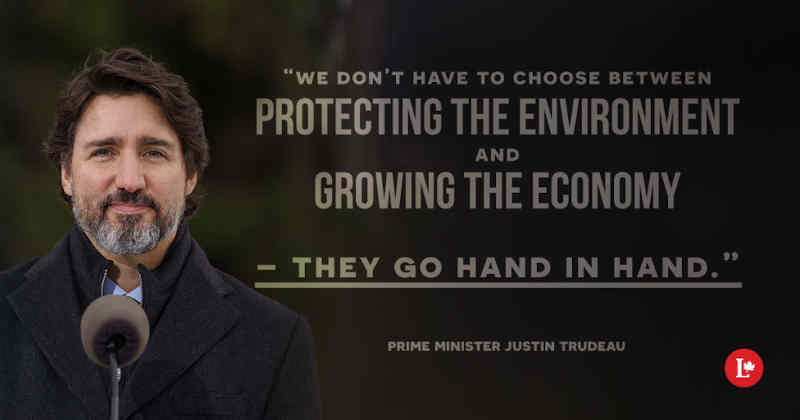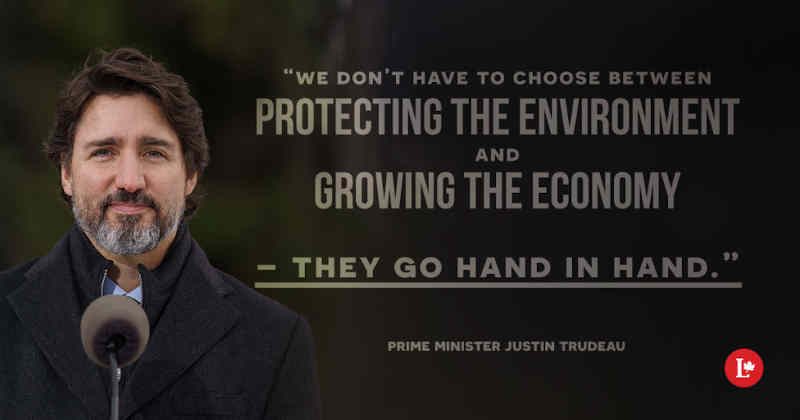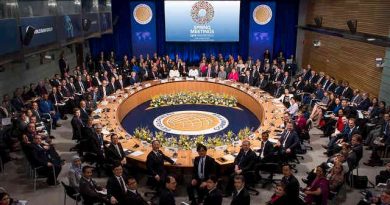Canadian Farmers Oppose Govt Move to Hike Carbon Taxes

The Canadian government wants to provide longer-term certainty to its climate action plan by imposing higher penalties on farm polluters.
Farmers in Canada are outraged over a decision to hike carbon taxes as part of the government’s plan to tackle the climate crisis.
In order to achieve net zero emissions in 2050, Canadian Prime Minister (PM) Justin Trudeau’s government has decided to increase the carbon price by $15 per year starting in 2023, raising it to $170 per tonne in 2030.
Farmers complain that the increase in taxes will make their produce globally uncompetitive. In the original plan announced in 2016, Trudeau’s Liberal Party government had imposed a carbon tax of $20 per tonne, raising it to $50 in 2022.
However, now the government wants to provide longer-term certainty to its climate action plan by imposing higher penalties on farm polluters. “As we continue to address the impacts of Covid-19 and ensure our strong economic recovery, we must also continue to fight climate change for the good of Canadians, our economy, and our planet,” Trudeau said in a statement.
But Canada’s agriculture industry is perturbed. The Western Canadian Wheat Growers Association says it is shocked that the federal government is hiking the carbon tax during the middle of a pandemic and with no regard to the impact on the bottom line of grain farmers.
[ Also Read: Knowledge Stories for Farmers ]
“The federal government has put a carbon tax on everything that is shipped to our farms, but those costs cannot be passed on to the end consumer. We sell our grain at world commodity prices, regardless of our input costs,” said Gunter Jochum, President of the Association.
The introduction of the carbon tax is expected to hurt farmers’ income by tens of thousands of dollars for each farm. As the regulations for the new Clean Fuel Standards are being unveiled, the cost of fuel will continue to rise.
This increased cost on greenhouse gas emissions will only take more money out of farmers’ pockets. During the 2019 harvest, farmers were charged carbon tax on the fuel needed to dry their grain. At times this cost was as high as 40% of the total bill.
The Association says that the federal government wants to fight climate change, but refuses to acknowledge that grain farmers are actually net zero emitters. In fact, grain farming is a carbon sink.
“Grain farmers have been using sustainable farming technology for decades yet have been given no recognition for our carbon sequestering. This tax increase will only hurt farmers’ income and raise the price of groceries for all Canadians,” said Stephen Vandervalk, Alberta VP of the Association.
The Western Canadian Wheat Growers Association is a voluntary farmer-run advocacy organization dedicated to developing public policy solutions that strengthen the profitability and sustainability of farming, and the agricultural industry as a whole.
💛 Support Independent Journalism
If you find RMN News useful, please consider supporting us.




